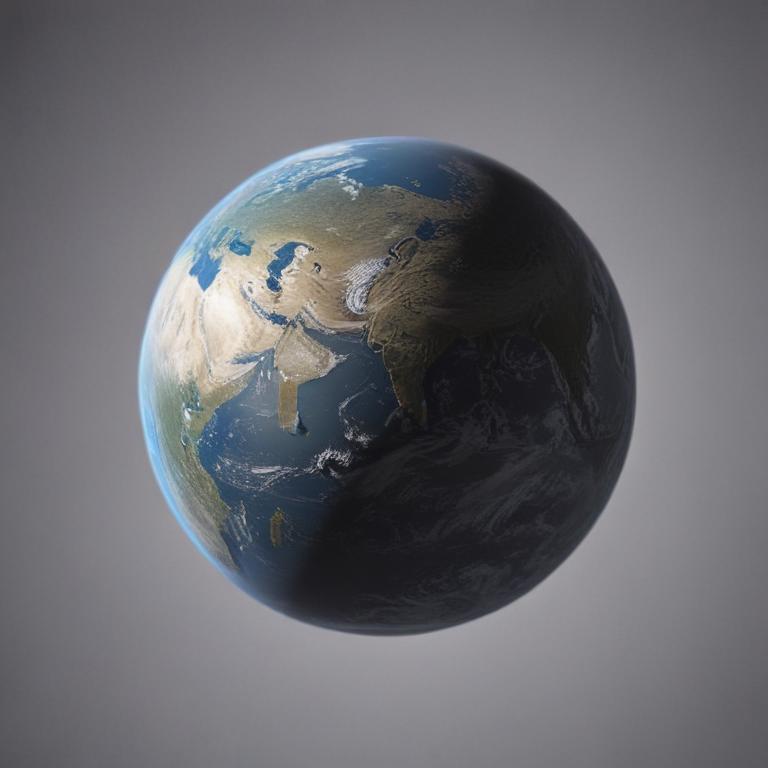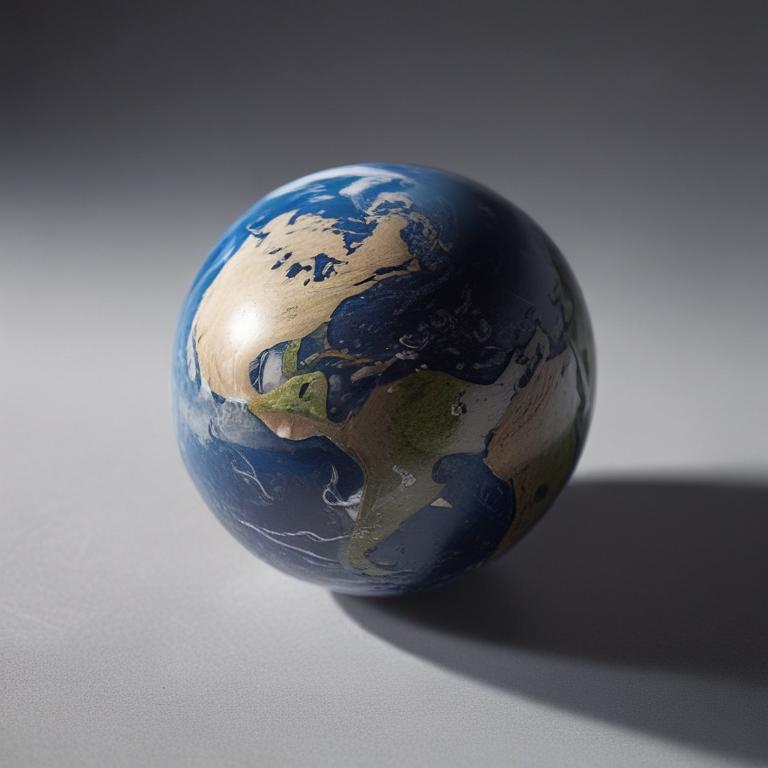发音 (Pronunciation):
IPA: /ˈplænɪt/
中文近似: 普莱奈特
中文意思与词性 (Meanings & Part of Speech):
- 行星(围绕恒星如太阳运行、不会自己发光的天体) (n.)
- (引申)有时指其他遥远的世界(如科幻作品中) (n.)
例句 (Examples):
1. The Earth is the third planet from the Sun.
(地球是距离太阳第三近的行星。)
2. Science fiction stories often take place on other planets.
(科幻故事常常发生在其他星球上。)
用法提示 (Usage Tip):
planet 专指“行星”,不要与“star(恒星)”、“satellite(卫星)”混淆。例如“the planet Mars(火星)”不是恒星;planet 在科幻中也可能泛指其他遥远世界。
更多关于 "planet" (More about "planet")
单词来源 (Etymology)
“planet”一词来自古希腊语“planētēs”,意为“漫游者”,指的是在夜空中的位置会移动的天体,相对于固定不动的恒星。
词根词缀解析 (Root & Affix Analysis)
基础词。其词根“plan-”与“平面”(plane)词根同源,原有“游走”、“流浪”之意,指天体在天空“游走”。
“planet”的字母与词根个性化解读
字母象形/引申义 (个性化参考)
- 字母 'p' 的象形或引申含义可能包括: 手/脚 (P=F); 手掌 -> 平; 棒子 (P=B); 音变: P=B=M=F=V。
- 字母 'l' 的象形或引申含义可能包括: 拉长, 长 (line); 舌头 -> 说 (language); 细, 少; 音变: L=M=N=R。
- 字母 'a' 的象形或引申含义可能包括: 牛角 (象形: 牛头, 力量, 能力); 下面宽上面尖 (形状) -> 延伸, 远处, 高处, 方向, 指示。
- 字母 'n' 的象形或引申含义可能包括: 水 (M=N); 鼻音 (nose); 突出/生长/新生; 门 -> 否定 (no, not); 连接; 音变: N=M=L=R。
- 字母 'e' 的象形或引申含义可能包括: 眼睛 (窗户符号引申); 向外 (ex-变体); 元音互换: A=E=I=O=U=W=Y。
- 字母 't' 的象形或引申含义可能包括: 顶端 -> 记号/标志; 手杖 -> 抓 -> 手 -> 伸展 -> 指示代词; 支撑 -> 站立; 三叉 -> Tr转换/转; 分叉; 音变: T=D=S=TH。
学习提示:以上针对单词 planet 的字母和词根解读,主要基于提供的特定象形及词根资料。这些提示旨在启发联想,而非绝对定论。更通用的记忆规则和原则请参考首页。英语词源复杂多变,实际应用中请结合更全面的词源词典和语言学知识进行深入学习。
常用词组 (Common Phrases)
- dwarf planet: 矮行星
- planet Earth: 地球(我们的行星)
其他语言 (Other Languages)
- 德语: Planet
- 法语: planète
字母整体创意联想
planet 这个单词像一个“小人行走”:p像一个人头和躯干,l像一条腿,a和n像两个弯曲的手臂,e像手托着圆形(星球),t像一根天线,整体就像一个人在宇宙中探险。
逐字母创意解读
中文谐音助记
“planet” 谐音“普莱奈特”,可联想“普遍来那儿——所有行星都在那绕(太阳)转”。
相关电影/名言
"That's no moon. It's a space station."
(那不是月亮,那是一个太空站。)
- 《星球大战:新希望》(1977)
趣味知识/故事
天文学家在2006年将冥王星从“行星”降级为“矮行星”,因为它不满足最新的“行星”定义,这一改变引发了全球范围的争议和热烈讨论。许多天文爱好者依然忘不了“九大行星”时代。
拓展信息
planet是天文学中专用词,表示围绕恒星运行、具有一定质量、能清除轨道附近其他天体的天体。地球属于太阳系八大行星之一。
英语常有“on another planet”的习语,意为某人思想与现实脱节或异想天开。
科幻文学和电影里常以“外星球”为舞台,planet常代表着未知、新世界和探索的欲望。
网络参考 (More about "planet" from the Web)
Planet - Wikipedia
The eight planets of the Solar System with size to scale (up to down, left to right): Saturn, Jupiter, Uranus, Neptune (outer planets), Earth, Venus, Mars, and Mercury (inner planets). A planet is a large, rounded astronomical body that is generally required to be in orbit around a star, stellar remnant, or brown dwarf, and is not one itself. [1] The Solar System has eight planets by the most ...
About the Planets - Science@NASA
Learn about the eight planets and five dwarf planets in our solar system, their sizes, locations, temperatures, and features. Explore the facts, images, and stories of each planet and dwarf planet with NASA.
The Nine Planets of The Solar System | Eight Planets Without Pluto
The Nine Planets is an encyclopedic overview with facts and information about mythology and current scientific knowledge of the planets, moons, and other objects in our solar system and beyond.

